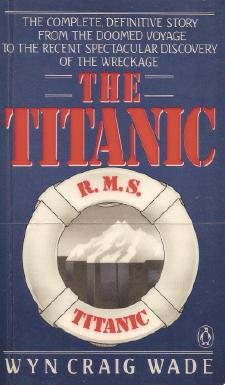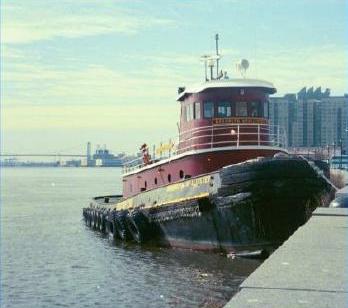|
This essay was posted Nov. 30, 2007. Let's Stop Hitting Those Icebergs  A Fascinating Account Mary Meehan Imagine that you're on the luxury steamship Titanic on the night of April 14, 1912, when she strikes an iceberg off the Grand Banks of Newfoundland. Instead of heading for the lifeboats, your fellow passengers decide to have a party as the great ship slowly sinks. The ship's orchestra provides rollicking jigs and general whoop-de-do. Some people dance wildly; others sit on the sidelines and gossip about fellow passengers. Officers and crew join the party. Instead of playing the hymns "Autumn" or "Nearer My God to Thee" as the ship finally goes under, the orchestra offers another merry jig. The actual sinking of the Titanic was not as bizarre as this. There were major blunders beforehand, though, including the captain's failure to reduce speed despite ice warnings from other ships in the area. Our current presidential campaign resembles the wackier scenario. There's an air of unreality about the campaign, as though politics can be business as usual during a war that does enormous damage both to Iraq and to our own country. Ignoring the huge public debt piled up by that war, candidates babble on about new government programs that we have no money to fund. The public, although cranky about the war and much else, is easily distracted by celebrity scandals. And many Americans party on as though they never will have to confront the real world.  Partying On with the Mad Hatter We may replace the captain before he can hit another iceberg in the form of Iran. Yet most people competing for his job cheered him on as he steamed full-speed-ahead into the first iceberg in Iraq. Some of the Republican candidates have said, in effect: "Hit that iceberg again! Harder!" Last spring most candidates, both Republicans and Democrats, were willing to consider any military option against Iran. They seemed to be giving the captain a blessing in advance. Had he decided to hit the second iceberg at that time, it would have been hard for the major Democratic candidates to complain. At least not until our ship seemed about to go under. Then they could have grumbled--as they donned their life jackets--that, by golly, the captain had snookered them again. Now, though, the major Democrats are saying it might be better to steer around the second iceberg. The media dutifully report the Iraq positions of each major candidate, but most fail to mention what seems obvious: If any "top tier" candidate is elected president, possibly excepting Sen. Barack Obama (D-Ill.), we are likely to stay involved in Iraq for a long time to come. That's because even most of the supposed antiwar candidates want to exit "responsibly" (translate this into "very slowly") and leave a residual force behind in Iraq and/or neighboring countries. To some of us old-timers, that sounds like Richard Nixon's "Vietnamization" program, which kept the Vietnam War going throughout his presidency. Why do the media anoint as top-tier candidates those who have been deeply wrong about Iraq? Sen. Obama is the only candidate who opposed the war in Iraq from the start and who also receives generous media coverage. This is partly due to media obsession with "firsts." (Will we soon have our first African American president? First woman? First Latino? First Mormon? First Italian American? Some of us want to say: "Well, hey, guys: Why not, instead, look for the most honorable, the most competent, and someone who has good principles and fine judgment?") And it's partly due to media worship of opinion polls. The early presidential polls largely reflect name recognition, which in turn reflects past media coverage. By focusing heavily on the early leaders, the media increase their name recognition and make it hard for those deemed "second-tier" to break through. Still, it's curious how little coverage is given to Rep. Ron Paul (R-Tex.), the only Republican candidate who stands against the war. By traditional journalistic standards, that is a man-bites-dog story. Paul is this campaign's equivalent of the late Sen. Eugene J. McCarthy (D-Minn.), who challenged his party and president over the Vietnam War in 1968. Like McCarthy, Paul talks about the roots of war in a foreign policy that is vastly over-extended and militaristic. He explains how the war has led to major violations of civil liberties and has exploded our public debt. He thinks it's time to give up the illusion that we can or should run the world. He believes our Founders were right when they advised us "to follow a non-interventionist foreign policy, stay out of entangling alliances, be friends with countries, negotiate and talk with them and trade with them." Whether or not they agree with Rep. Paul's views, reporters and editors should realize that millions of voters do. And all voters have a right to know that there's an alternative to policies that keep us lurching from one disastrous war to another. Not just any new captain will do. We need one who will tow our battered ship of state into port for a major policy overhaul.  A Tugboat for the Ship of State |